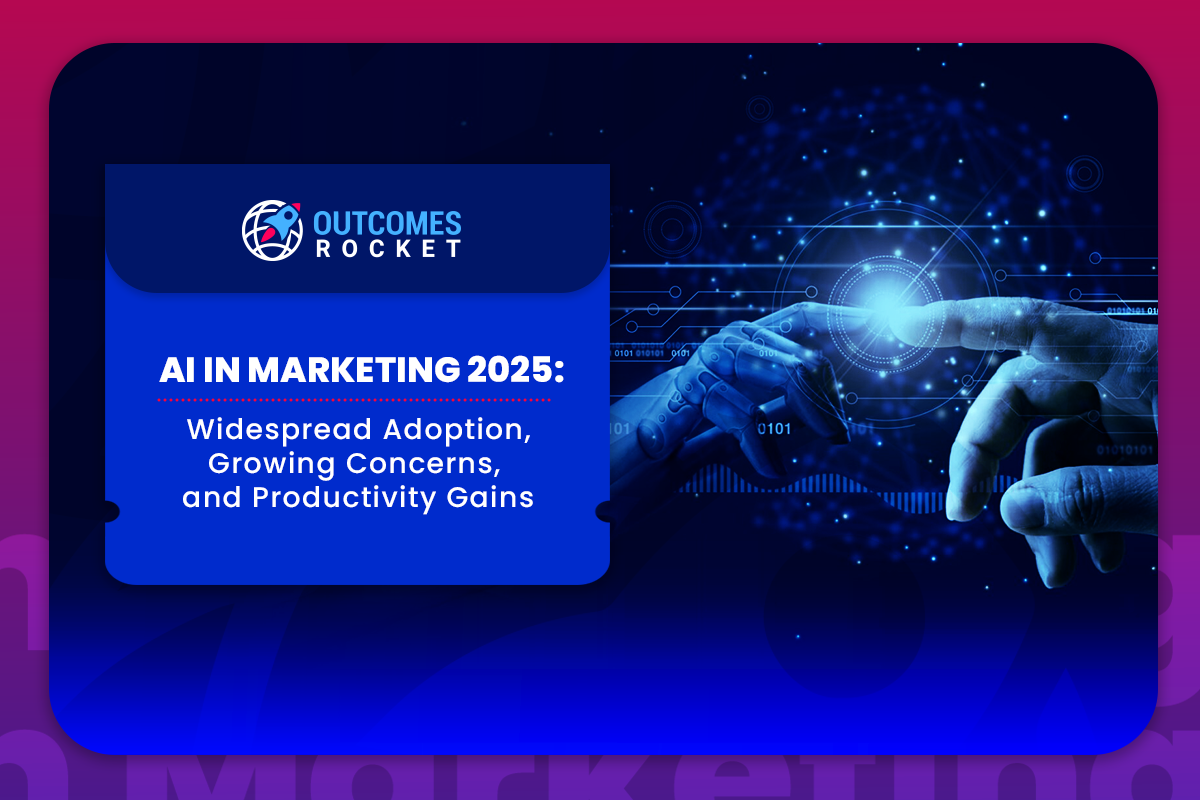AI in Marketing 2025: Widespread Adoption, Growing Concerns, and Productivity Gains

As the wave of artificial intelligence is rising, affecting industry after industry, marketing is undoubtedly at the forefront of this transformation. To gain a comprehensive understanding of the integration of AI in marketing processes, we surveyed 1,229 marketers across various functions and company sizes. The results provide a clear image of a rapid development that sooner or later will become inseparable from the functioning of marketers, generation, and planning.
Through our study, we find that AI implementation is transformational at scale, but it is not uniform. AI offers extraordinary opportunities; however, it also raises apprehension about accuracy, creative processes, and employment opportunities.
Key Findings
- 89.5% of marketers are already including AI into their processes, with small businesses extensively using it to develop a competitive advantage.
- Generative AI is the most widely adopted, with 93.5% of marketers using it. ChatGPT is the dominant tool for 94.8% of users.
- AI is mainly applied to create content: 82.4% of marketers use it for articles, social media captions, creatives, and headlines or taglines. Data analysis, research, and personalization follow closely behind.
- Only 24.3% of marketers have used agentic AI, though 33% indicate their organization has already implemented or tried it.
- Challenges persist: 93.4% encounter errors, bias, or irrelevant results; 71.1% will never publish AI-produced content without reviewing it; 80.8% have received no formal training on AI tools.
- AI delivers measurable benefits: 86% report time savings, averaging 4.74 hours per week.
- Job security concerns remain: 88.9% reckon AI may cost jobs in the next 2-3 years, though 62.7% see AI as a co-pilot rather than a replacement.
- Future expectations: 79% anticipate advanced generative AI having the most impact, followed by predictive analytics (55%) and hyper-personalization (54%). Nearly half (48%) highlight agentic AI, with 41.7% expecting increased AI investment next year.
Conclusion
The survey highlights why AI is becoming central to marketing. Generative AI leads the way, while agentic AI is in early adoption. Challenges remain, including inaccuracies, lack of training, and job security, emphasizing the need for integrated and upskilling strategies. Marketers must guide, question, and elevate AI output to leverage its transformative potential.
Methodology
The survey was conducted in June 2025 using Prolific. There were 1,229 marketers across various industries, roles, and organization sizes participating. The findings provide a cohesive picture of AI’s role in marketing today and its trajectory soon.
FAQs
Sources

Turn Healthcare
Insight
into Accelerated Growth
Our healthcare growth teams works closely with you to design strategies tailored to your unique goals and market dynamics, fully focused on growth.
